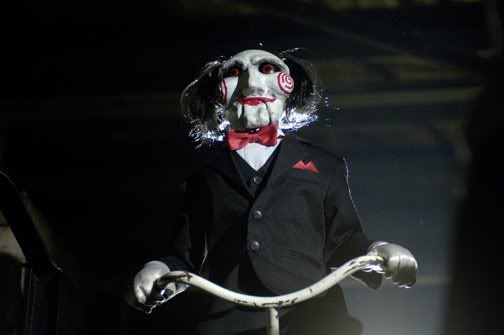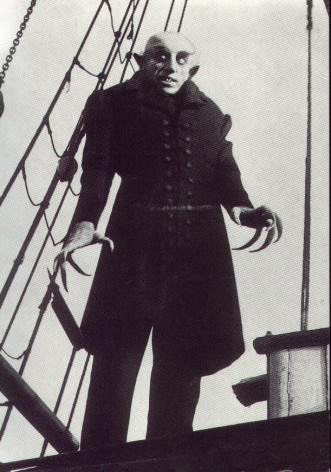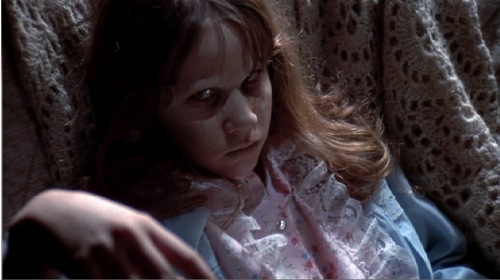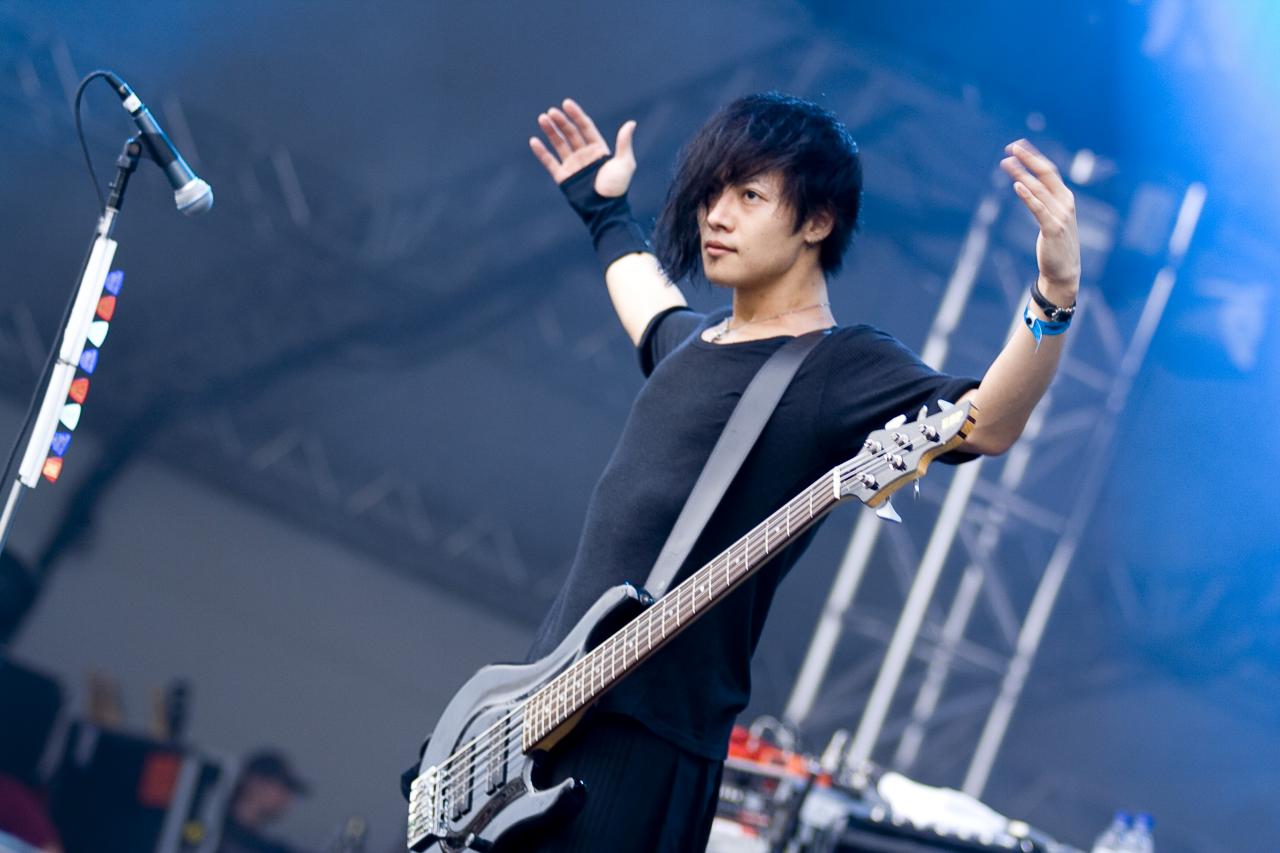by Alex McDermott:
Words have no power to impress the mind without the exquisite horror of their reality.
Edgar Allan Poe
Horror is big business these days. From huge events like ZomBCon in Seattle, Washington to the plethora of novels, films, comic books, and toys, fear is definitely in demand! Zombies, werewolves, vampires, and everything in between stalk us from the shadows and we can’t get enough. But when the screen goes dark or you close that last page, do you ever stop to ask yourself a simple question? Why? Why are we so fascinated with monsters and horror? As I sat late one evening staring into the darkness, I asked myself that very question. Adolf Hitler. Rwanda. The Holocaust. The Zodiac Killer. Son of Sam. Richard Ramirez. There is real horror in the world. Why do we seek it out in fiction? Why do we want invented nightmares? As the minutes ticked by and the shadows crept up on me, I decided to go to the source. Every horror author must have that moment too! It’s that moment, late at night with a glass of wine, when he or she pauses at the keyboard, stares out into the darkness and asks that simple question. Why are we so fascinated with monster and horror?
Scott. M. Goriscak, author of Dead and Decaying, believes that “being frightened is the most incredible emotion one can experience.” To Goriscak, horror “fuels unpredictable reactions both mentally and physically.” Fear is the most powerful unknown. People experience “sensations every day in the forms of love, hate, happiness etc. The difference in our everyday emotions is that we most likely create the situations resulting in the emotion we seek.” Because it’s so powerful, “fear of the unexpected and the surprise of the unknown lets our imagination wander and our hearts race. The fear of the unknown allows our imagination to flirt with the danger without knowing our outcome.” There’s a momentary thrill when we see that shadow in the corner and feel the stab of fear.
Our fascination with horror comes from “an inherent desire to be evil,” according to Mikel Classen, author and owner of NetBound Publishing. He believes there is an “attractiveness to the dark side, to monsters and creatures of horror.” They have “power, strength, and abilities, we in the everyday world sometimes envy.” Horror, Classen argues “allows us to experience these things without acting on them. We get to look into dark corners and truly see the monster in the closet, experience what it is to be a vampire, tear off our human façade and turn into a crazed flesh rending werewolf.” He points out that we all have those times when there’s a certain amount of appeal in digging into the beast within. “Deep down inside,” he says, “we all have a dark side, one that begs to come out, horror allows that to happen, vicariously live through characters created for us satisfying that need.” For Classen, horror is “about getting a raw visceral experience, wrapped in a tale of the odd, strange and curious while not having the fear of the consequences, such as pacts with the devil and prison terms.”
For some it’s the allure of the dark side, but for others it’s the release that horror offers. Joshua Cook, creator of Zombie A.C.R.E.S. says his love of monsters comes from a combination of things, including a feeling of security over the fear. He says that while he’s enjoying “what scares the crap out of me, I’m immersed in a world of fear that is beyond my control.” He points out that we the readers are “helpless to the artist” while we’re immersed in the work. Afterwards, he says, he feels a “sense of security. Yeah, I am still scared,” he argues, “but in a secure environment.” Fear, he believes, is the strongest of all human emotions. “Some may say it is survival, but what is it that makes us want to survive so bad?” Cook believes it’s our fear of dying. Our fear of the unknown as he puts it. It’s “our fear of being forgotten after we leave.” Cook believes that the horror genre taps into these primal feelings of fear and survival. He says that’s what gives us the “adrenaline rush while we are watching Barbara get chased by the graveyard zombie or Jigsaw attack his latest victim.”

For some, horror gives humanity a place to explain terrible things. Fiction becomes a medium to rationalize the Hitlers, the serial killers, and the real-world nightmares. Author Blaze McRob says that “for me, it’s a means of trying to explain real world life. He believes that if we “substitute a non-existent creature in the place of a real world combatant, it enables us to grasp the complexities of what is with what isn’t while leaving the mind open to ways of elimination.” We are better able to cope with the seemingly irrational acts of serial killers in our own world through the world of fiction. He points that “writers hold great power: powers greater than other humans because we are able to expel the bad things from our souls and eliminate those who would or have done us harm.” The words on the page become a release of inner demons. Authors have the ability to “wipe the slate clean, writing about means of revenge we would never employ in real life.” Like Classon’s visceral experience that keeps him out of prison, McRob sees horror fiction as an outlet. “The spouse who is on the receiving end of a brutal or cheating partner can,” he argues, “turn the tables with his/her words and become the winner in the game of a failed union. The abused is now the conqueror, subjecting the abuser to retribution.” But for McRob, there is an even more powerful allure to horror. He states that “the number one reason for people believing, or wanting to believe in monsters… is religion; that great opiate to render the masses capable of domination because of fear.” He points out that “if one fears the power of Satan, will he not fear the power of demons and other creatures under the spell of the Dark One? Will this not lead people to seek their solace within the auspices of the church or seek the direct help of God?” Horror fiction, according to McRob, gives humanity a path for rooting out evil. “Since the beginning of time,” he argues, “humankind has been told of the evil lurking about them and the need to sacrifice humans and animals on altars to keep others safe. Once more: a case of the High Priests gaining authority by means of spreading these tales of evil-doers.” Fiction was an ancient tool to ensure survive and that instinct has remained deeply embedded in our cultural and religious psyche. But, McRob states, maybe what we want to believe in comes not from fear, but “because these monsters have become heroes in a way, able to do what we can merely aspire to achieve.” The immortality of the vampire is seductive. The wanton destruction of the werewolf feeds our inner beast! This allure of the monster has become a staple in horror today.
 The vampire, and its immortal gift, has become the object of erotic fantasies and teen romance. Vampire cops protect humanity with their preternatural skills. Author Robbie Anderson argues this allure is a double-edged sword that keeps us “coming back as we look into the abyss.” He believes that monsters “represent the dark and the light of our inner selves.” He says we “see their strength, their abilities, and we fear that power.” But, he says, “we also want it for our own. We want to live forever. We want to run savage through the woods unbridled by human restrain.” He argues that ultimately though, “we understand that humanity continues because of our order. Because of our restrain. Without it, we fall into chaos.” The monster, therefore, “represents humanity’s ability to conquer the beast.” He points out that the classic horror stories almost always end with the death of the creature and “the redemption in the power of humanity.” He believes “we create stories to reaffirm and validate our ability to conquer the beasts. Horror is our way of ensuring we kill the monsters… something we never seem to be able to do in real life.”
The vampire, and its immortal gift, has become the object of erotic fantasies and teen romance. Vampire cops protect humanity with their preternatural skills. Author Robbie Anderson argues this allure is a double-edged sword that keeps us “coming back as we look into the abyss.” He believes that monsters “represent the dark and the light of our inner selves.” He says we “see their strength, their abilities, and we fear that power.” But, he says, “we also want it for our own. We want to live forever. We want to run savage through the woods unbridled by human restrain.” He argues that ultimately though, “we understand that humanity continues because of our order. Because of our restrain. Without it, we fall into chaos.” The monster, therefore, “represents humanity’s ability to conquer the beast.” He points out that the classic horror stories almost always end with the death of the creature and “the redemption in the power of humanity.” He believes “we create stories to reaffirm and validate our ability to conquer the beasts. Horror is our way of ensuring we kill the monsters… something we never seem to be able to do in real life.”
Like Andersons’s primal need to destroy evil, Greg F. Gifune, author of Gardens of Night, believes horror is “essentially a primal thing that goes back to the origins of Man.” For Gifune, monsters and horror “generally represent the darkest parts of the human experience” He believes it’s in that “connection where our fascination and love-hate relationship with fear is born and thrives.” He argues that many of our fears are a “residue of sorts, from earlier times when being human and being alive was far more dangerous than it is today… although with the direction much of the world is headed in lately that might be open to debate.” Again, like Anderson, Gifune believes there is a “symbiotic relationship” that “evolves between the monsters and horror, and us.” He speculates on the possibility of a greater monster than the human kind. He asks us to consider if there a greater horror than the horror “born of and disseminated by human beings?” He believes that “because human beings are also capable of boundless love and compassion, we’re able to keep those barriers between ‘us’ and ‘them’ at least somewhat intact.” He argues that “we are the monsters. We are the horror. Yet we’re also the saviors and the remedies for both.” He believes, like Anderson, that “we slay the monsters. We conquer the horror. Because in the end, those monsters need us and we need them. They keep us honest.” Like many of the horror authors here, he too stresses that “in the entertainment realm, we create monsters and horrors and people are drawn to them so that we can touch the night, touch the evil, and maybe even understand it from a safe place where there’s no real chance to be consumed or hurt by it.” He says that “in doing so, we’re reminded of what we are, and what ‘they’ are. We’re fascinated by monsters and horror, near as I can tell, because we see ourselves in ourselves in both. And then, happily, we don’t.”
Like Joshua Cook, author Kendra Daniels sees horror as our primal fear of the unknown. Through fiction, she argues, we take the monsters “out of the closet, into the light of day, where we can understand them, and take away some of the very real fear of them.” We read about them, digest the terror they create, and ultimately grapple with that fear. She believes that “familiarity… breed contempt. The more we know about the things we fear, the less we fear their power to harm us.” Like many of the authors, Daniels argues that horror helps us come to terms with real world nightmares so they do not have the power to paralyze us with fear.
Eric S. Brown, author of Bigfoot War and Last Stand in A Dead Land turns the entire argument on its head! Instead of the intense imagery or mastery of fear, he believes we love horror for the sheer fun. Horror and monsters, he argues, are “a form of escapism that allow the reader/viewer to leave the world behind for a bit and experience something beyond the norm.” We vanish into worlds that cannot exist to fuel our imagination. At its most extreme, apocalyptic themes go “beyond that and gives one the fantasy of the struggle against impossible odds and being one of the last left alive.” We envision ourselves as that ultimate hero bringing order to chaos as we kill off the zombie hordes. Brown points out that this “shows us what we humans are capable of in the extreme whether that be good or evil.” Horror becomes a reflection of our inner selves.
Thomas Scopel, author of Twitch, Lickety-Split and numerous other works, readily admits he has no idea why we love horror! Fear has always fascinated him, starting with the classic Romero zombie film Night of the Living Dead. After that, he acknowledges that he became a “bonifide horror junkie… instead of sticking a needle laced with drugs into my veins, I stuck horror novels, magazines, comic books, and movies in through my eyes, hoping to acquire that utmost feeling again.” He reflects on that feeling, that moment, when you realize you are truly afraid. You return to the novels, the movies, and the comic books looking for that feeling again. For Scopel, that began with Romero. But, he stresses “just as I started considering whether or not I would ever acquire that fear feeling again, it happened. I was probably eleven or twelve and it came in the form of The Exorcist.” That adrenaline rush of fear, real fear, returned. We love the “next great scare” and he argues, “fear can be exciting, invigorating and dreadfully encompassing. It can be the cause of hearing odd sounds that aren’t really there or force a person to offer a second glance into that dark corner, unsure of whether they hadn’t see something lurking there.” We look twice when we’re afraid. He also says that “it can bring on clenched teeth and nail biting, tense muscles and a queasy stomach. It can be the cause for one to look away or put the book down, intent on never reopening it.” He believes some people fall in love with those feelings and fear therefore “is something that is fully welcome!”

Ordered society tells us that monsters are inherently evil. We must turn away from them and reject them in order to maintain our humanity, but author Nomar Knight believes this then becomes the very reason we see them out! He argues that we are “intrigued when monsters are unmasked and revealed for being human. Once the initial shock begins to fade as we recognize our capacity to commit atrocities, questions begin gnawing at our minds.” Horror draws on the darkest parts of humanity and reflects it back to us, forcing us to reconsider our fragile beliefs. Knight says that he’s always been “intrigued when someone was motivated to kill, especially if that person was drawn in by vengeance.” It’s not about excessive gore and pure violence. Instead, “there’s something special in getting others to act against their nature… to get a daughter to endorse the physical torturing of her mother, to witness someone who has been pushed to the brink explode not with callous violence, but with calculated malice, thereby taking away what was most precious to the enemy.” Horror allows us to act out our “darkest fantasies through fascinating characters, all the while being thankful that… real life hasn’t always been riddled with horrific events.”
Like Knight, Todd Card, author of Hell Cometh, argues that it’s the fantasy element that draws people to horror. Only he believes that it is not our darkest fantasies come to life, but “the created world of monsters and fictional horror distracts us all from the heinous murderers, rapists, dictators, ethnic cleansing, slavery, and war around us.” The real world is saturated with very real monsters and terrors and Card points out that we absorb these nightmares on a daily basis. We choose an escape from it. According to Card, some choose art and others “drinking and drugs.” For Card, horror is the healthy fantasy world to disappear from the real terrors “the human race have created around us.” For some, horror comes from the past. Author David Thomas points out that his native country of England is “awash with legends and urban stories,” some true and some fiction. These stories fuel the imagination and tap into something Thomas believes moves beyond the mundane world around us. He argues that “there’s something more” than the concrete and there’s a “feeling of reading a good horror story” that cannot be put into words! The myths and legends themselves came from someone’s imagination and they continue to live in modern horror as well. Our fascination with monsters is, therefore, nothing new!
Like many authors, Lisa McCourt Hollar emphasizes the thrill that horror creates. One of her most vivid memories is her first real horror movie in sixth grade! She said she was “scared to death yet I couldn’t take my eyes from the screen.” The fear mingled with tense anticipation and she “had to see what happened next and when the heroine gouged the eyes out of the villain, I was so excited.” It was that visceral thrill Knight described; our darkest fantasies come to life through fiction.We turn away, then look back knowing we shouldn’t. McCourt Hollar describes it as a “high” much like Card does. It’s a healthy drug. As she watched her first film, her “blood was pumping” and her “heart was racing.” Like any good drug, it left her wanting more!
Like Card, Carole Gill, author of The House on Blackstone Moor, points out that we “exist in a world that has given us wars throughout time, the Holocaust, various genocides, mass murders, psychotic killers, bigotry in all shapes and sizes and degrees, slavery, abuse of children, women, men and the elderly.” We know evil is very real and we need to “find a way to deal with it.” We must synthesize it in order to maintain our sanity. According to Gill, the “worst monsters are the human ones. They are the genuine evil that exists in the world and always has done.” Fiction creates a single monster, the embodiment of evil, and most importantly, is capable of being destroyed. Gill does not “condone nor do I celebrate it.” Horror fiction allows us to kill the beast that we cannot always do in real life. She argues that “we fear it so greatly we want to see it up close (in fiction and film)—thereby understanding it better or tearing it down and ‘making it less than it is’ so we no longer fear it.” Horror, Gill believes, “reflects our fear of the world around us.” Through fiction, we do battle and conquer the evil in order to cope with it in real life.
B.E. Scully, author of Verland: The Transformation and The Knife and the Wound It Deals, brings all of the complex arguments together when she says:
The monster is the creature that has been cast into the shadows, that has been expelled from the brightly lit world of so-called certainty and order. And from those shadows, the monster howls; we hear this howl—and recognize it—and howl back, or along with it, our repugnance and fascination as inextricable, as indistinguishable, as we are from the monster itself. I’ve been drawn into that shadow world from the first time I wondered what lurked at the end of dark drainage pipes, or waited in the small hours of night for the creatures that live and breathe in darkened spaces and secret places. Then quick, turn on the light and dispel the shadows! But only long enough for the monster to rest, to allow us our quiet moment before again unleashing the ancient, primal howl…
Why are we fascinated with monsters and horror? The very people that bring these creatures to life cannot agree! There seems to be the common theme of real world versus fiction. We need to live in the fantasy in order to continue to face the dark elements within ourselves. When our faith is shattered, our peace disturbed, and our world seems as if it’s never going to be the same, we turn to fiction. The stories reaffirm our belief in humanity. We win. They lose. The darkness is vanquished. The sun comes up. When the sun sets, another story begins.
Searchers after horror haunt strange, far places.
H. P. Lovecraft
















3 Comments